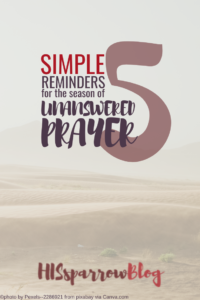Chronic illness sufferers can experience a wide variety of negative symptoms, but perhaps the worst one is seeing your mental capacity decline. Not being able to trust your own mind is a scary thing. Here are five tips for dealing with memory issues.
I still remember that day: My sweet husband treated me to one of my favorite restaurants for our once-a-month date. We ordered and talked as we crunched on chips and salsa. And then the food came.
“I’m sorry, but that’s not what I ordered,” I said. “I asked for an enchilada.”
The server just looked at me for a minute, and finally my husband said, “Sweetie, this is what you ordered.”
I started to object and then rehearsed what I’d said earlier in my mind. They were right. The server brought me exactly what I’d ordered. Apparently, I had thought one thing while the other came out of my mouth.
The server asked if I wanted him to bring me the enchilada, and my husband, knowing I would not be satisfied with anything else, requested it for me. It was a delicious enchilada, but I was near tears the whole time I ate it. I was embarrassed, discouraged at my own inability to trust my mind, and afraid that I would have the same mental issues my dad had.
Under the Surface
If you’ve been around here long, you probably know that I have Fabry Disease and my dad also had it. I won’t go into what it is, since I’ve done that several times and it’s takes a lot more than one sentence to explain it, but click here for a pretty good explanation. And here are a couple of posts where I’ve discussed it before: Chronic Illness: My Story and Fabry Disease: The Story Continues.
I haven’t talked about the mental issues so far.
Probably ten years before my incident my family and some friends went out to eat. It was the same scenario with my dad. He insisted that he’d ordered French dressing on his salad instead of the honey mustard he got. The server and all seven of the rest of our group had heard him request exactly what he got—honey mustard.
He insisted we were all wrong. Loudly. I wanted to sink into the floor with all the extra eyes on our table.
That incident wasn’t a big deal, but I guess it became a sort of microcosm of what dealing with my dad’s mental issues was like. And now, I feared I would have the same issues—not years down the road but now.
My wonderful husband talked me off the ledge that day, but I know this is something I’ll deal with on some level for the rest of my life. It may not be the same severity for me as it was for my dad, since I’ve been on treatment since I was eighteen—thanks to my dad and others like him who participated in painful and invasive studies to help the next generation.

Tips for Dealing with Memory Issues
I have been in the middle of what I call my brain lows the last month or so. Writing my posts lately has been a struggle, so I thought I’d put together a list of things I do to help me at times like these.
Maybe these tips can help you, too, because chronic illness sufferers aren’t the only ones who deal with memory issues. Age eventually catches up to us all.
#1 – Play brain games.
I’ve always loved games, which is a good thing since they can help me slow the progression of memory issues. They can help with key cognitive functioning skills like recall, reasoning, speed, and memorization.
There are quite a few apps you can download to help with this, or you can download the games you want to play. Here are some ideas of games to play:
- Crosswords
- Word Finds
- Memorization Games
- Speed games
- Puzzles
Remember to focus on those key cognitive areas. I love Merge Dragons or Farmville, but I’m not sure how much those help with memory issues.
#2 – Set reminders that work for you.
Reminders are essential. Birthdays, to-do items, and events can be hard to remember when you add memory issues to a Type B personality.
You can use a notepad if you want—go old school—or use your smartphone. My phone has become a wonderful tool for me. If there is something I keep forgetting to do, I set an alarm for it. Anything that requires my attendance goes in my calendar.
I’ve even started using my calendar as a kind of diary: I record important events—even if they’ve already passed. This helps me keep track of all sorts of things—from when I last cut my hair to when my dog died.
#3 – Make routines/systems for repetitive parts of life.
Routines have become an important way I remember to do things like taking my medicine. Doing it at the same time each day or associating it with another activity like dinner works well.
But those repetitive things can make it hard to distinguish one day to the next— wait: was that today or yesterday? I’ve developed little systems to help me with that. Like when I take my morning dose of medication, I flip the bottle upside down and place it somewhere I know I’ll see it—cuz if I can’t see it, it doesn’t exist. This tells me at a glance that I haven’t taken my second dose for the day.
#4 – Remember there will be highs and lows.
Knowing there will be highs and lows can be both comforting and discouraging, but by facing the fact that the lows will come around again, I can remember 1) they don’t define me and 2) the highs will also come again—and one glorious day only the highs will remain.
#5 – Rely on loved ones.
I can do a lot for myself in this battle with memory issues, but there may still be times that I forget something, misremember, or order the wrong thing. It will be easier, though, for both me and my loved ones, if I don’t fight their well-intentioned guidance.

Cognitive issues with a chronic illness can be a special kind of tough, but there are things I can do to both help my functioning and morale. I am no more defined by my these issues than I am by any other part of my disease.
Do you have any other tips to add? Let me know in the comments below.
More reading…
- Chronic Illness: 5 Truths I’ve Learned From Fabry Disease from HISsparrowBlog
- Chronic Illness: My Story from HISsparrowBlog
- Fabry Disease: The Story Continues from HISsparrowBlog
Fabry Resources {make reusable block}
- National Fabry Disease Foundation
- Fabry Disease News
- Fabry Support and Information Group (FSIG)
- ReThink Fabry (Resources and Support)
- Mindfully Rare (Mental Health Support)

I frequently link up with the following: Grace & Truth with Embracing the Unexpected, Tell His Story with Jeanne Takenaka, and Let’s Have Coffee with Joanne Viola.





So sorry you are dealing with this! I think a big one is having a support group. I’d add that. Your husband was a champ for you in the example above.
That’s an excellent point, Sarah: good support is huge. Thanks so much for stopping in!
I know this is challenging for you. Now that you have shared this issue, I will pray for you. You are such a dear caring person and I love you.
Thank you, Judy! You’re a treasure to me.
You are a brilliant young woman! Continue trusting God. He’s got you ♥️
Thank you!
I appreciate your straight forward approach to this. My mother passed away in 2010 with Alzheimer’s and it’s been my fear ever since that I’ll start losing my memory, too. But if I do, I do; I don’t want to keep wasting time worrying about it. In the meantime, I appreciate the tips you give here. I already rely on several of them myself.
Bless you, Lisa. It’s a beautiful testimony to be able to say God is good either way it goes—it is well. I always appreciate your insight. Thanks for stopping by.
Ashley, I am so sorry you deal with this. I so appreciate you sharing so transparently and pray these suggestions help many.
Thank you, Joanne!
Ashley, thank you for your vulnerability in allowing us to walk with you in these hard places. Chronic illness is difficult to accept and live with gracefully. I love that you found a positive side to this and offered us some fabulous advice for dealing with memory issues.
Thanks so much for stopping by, Donna!
Ashley, I’m walking alongside you in this every single day. I’ve found the blessing in memory impairment is that I forget just how often I mess up! And the blessing in cognitive disorder is that half the time I’m totally oblivious to the fact that I messed up at all! But of course there are tears. There’s healing in sharing our struggle, both for ourselves and our readers. Hugs.
That’s certainly a wonderful way to look at it, Valerie!
Ashley, thank you for your raw vulnerability in sharing this. It’s taken me a while but little by little the Lord is nudging me to use my voice in my writing being vulnerable myself regarding my chronic illnesses and how they affect me. I’m learning how to voice glorifying God through it all. I was moved to tears as I read this. Relating with you my friend. Blessings.
~Selah~
That’s wonderful, Paula. Your voice and your story is important to someone going through the same. It’s amazing how God uses our vulnerabilities—that we’re tempted to keep hidden—in a way others will never be reached otherwise. Blessings to you in your chronic illness journey! Thank you for stopping by.